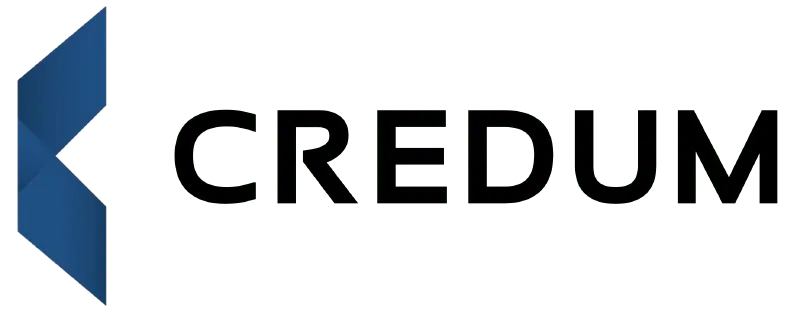Cash card
- All credit scores
- 100% online
- 15 minute approval

A cash card is a handy way to manage your money. It works like a debit card, letting you spend funds you’ve loaded onto it. These cards offer a simple alternative to traditional bank accounts, making it easier to control your spending and avoid debt. While cash cards can be useful, it’s important to carefully consider your financial needs before choosing any financial product.
Understanding cash cards
Cash cards are handy financial tools that offer a convenient way to manage your money. These cards work like debit cards but with some unique features. They allow you to access your funds without carrying physical cash. Cash cards are often linked to a specific account or loaded with a set amount of money.
Here are some basic features of cash cards:
- Easy to use for purchases and withdrawals
- Can be reloaded with funds as needed
- Often have lower fees than traditional bank accounts
- May offer budgeting tools to help manage spending
While cash cards can be useful, it’s important to carefully consider your financial needs before getting one. Always read the terms and conditions, and compare different options to find the best fit for your situation. Remember, responsible money management is key to financial well-being.
Benefits of using a cash card
Cash cards offer several advantages over traditional banking methods. These cards provide a convenient and secure way to manage your money. They allow you to make purchases and withdraw cash without carrying large amounts of money.
| Feature | Cash Card | Traditional Banking |
|---|---|---|
| Accessibility | 24/7 access to funds | Limited by bank hours |
| Convenience | Easy online/mobile management | May require branch visits |
| Fees | Often lower fees | Can have higher fees |
| Budgeting | Easier to track spending | May be more challenging |
Cash cards can help you better control your spending. You can only use the money you’ve loaded onto the card, which can prevent overspending. They’re also useful for people who may not qualify for traditional bank accounts.
However, it’s important to carefully consider your financial situation before choosing any financial product. Weigh the pros and cons, and think about how a cash card fits into your overall money management strategy. Remember, responsible use of any financial tool is key to maintaining good financial health.
Types of cash cards available
Cash cards come in various forms, each designed to meet different financial needs. Let’s explore some common types:
- Prepaid cards: These allow you to load money in advance and spend up to that amount. They’re great for budgeting and don’t require a bank account.
- Debit cards: Linked to your bank account, these let you access your funds directly. They’re widely accepted and often come with ATM withdrawal features.
- Payroll cards: Employers use these to pay wages, especially for workers without bank accounts. They function like prepaid cards but are automatically reloaded on payday.
- Government benefit cards: These distribute public assistance funds, such as unemployment benefits or food stamps, in a convenient card format.
Before choosing a cash card, carefully consider your financial situation and needs. Each type has its own fees, features, and limitations. It’s crucial to read the terms and conditions thoroughly. Remember, responsible use of any financial tool is key to maintaining good financial health.
How to obtain a cash card
Getting a cash card can be a convenient way to manage your money. Here’s a simple process to help you get started:
- Choose a reliable financial institution that offers cash cards.
- Gather necessary documents, such as a valid ID and proof of address.
- Visit the bank or apply online, depending on the institution’s options.
- Fill out the application form carefully, providing accurate information.
- Wait for approval and card delivery, which may take a few days to weeks.
Remember, it’s crucial to consider your financial situation before applying for any financial product. Take time to compare different options and understand the terms and conditions. A cash card can be useful, but it’s important to use it responsibly and within your means. Always think carefully about your financial decisions and how they may affect your future.
Using your cash card responsibly
When you have a cash card, it’s crucial to use it wisely. Think of it as a tool to manage your money, not a free pass to spend. Always keep track of your balance and avoid overspending. Set a budget and stick to it. Remember, every purchase adds up!
Before using your card, ask yourself if you really need the item. Is it a want or a need? This simple question can save you from unnecessary expenses. Also, be careful about fees. Some ATMs charge extra when you withdraw money. Look for partner banks to avoid these charges.
Protect your card like it’s your wallet. Don’t share your PIN with anyone. If you lose your card, report it right away. Keep an eye on your transactions to spot any odd activity.
Using your cash card responsibly means thinking before you spend, keeping your information safe, and always knowing your balance. It’s the smart way to manage your money.
By using your cash card wisely, you can avoid debt and build good money habits. It’s all about making smart choices with every swipe or withdrawal. Your future self will thank you for being responsible today!
Potential drawbacks to consider
While cash cards offer convenience, it’s crucial to be aware of possible downsides. Here are some points to keep in mind:
- Fees: Some cash cards come with hidden charges that can eat into your funds.
- Limited acceptance: Not all stores may accept your cash card, restricting your spending options.
- Security risks: If lost or stolen, unauthorized transactions may occur before you can report it.
- Temptation to overspend: Easy access to funds might lead to impulse purchases.
Warning: Be cautious with your spending. It’s easy to lose track of your budget when using a cash card.
Before getting a cash card, carefully weigh these factors against its benefits. Consider your financial habits and needs to make a wise decision. Remember, responsible use is key to avoiding potential pitfalls associated with cash cards.
Making an informed decision
Choosing a cash card is a big decision. It’s important to think carefully about the good and bad points before you decide. Let’s look at some things to consider:
| Pros | Cons |
|---|---|
| Quick access to money | Possible high fees |
| Convenient for online shopping | Risk of overspending |
| No need to carry cash | Limited acceptance in some places |
| Easy to track spending | Potential security risks |
Remember, what works for one person might not work for you. Take your time to compare different options and think about your own needs. Don’t rush into getting a cash card just because it seems easy. Think about how you’ll use it and if it fits your budget. It’s okay to ask for help or advice from someone you trust. Making a smart choice now can save you money and stress in the future.
